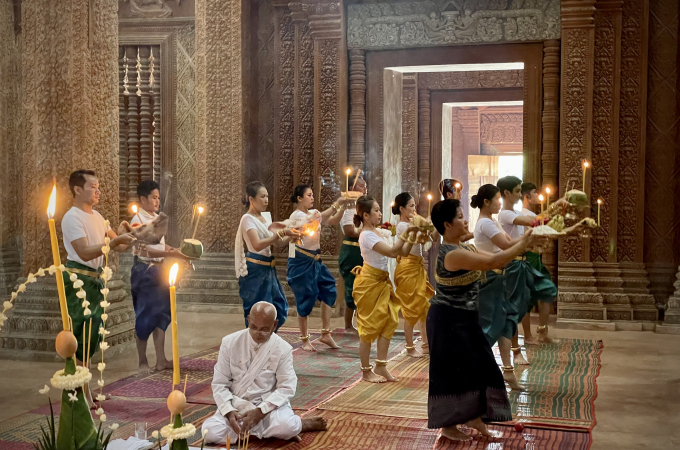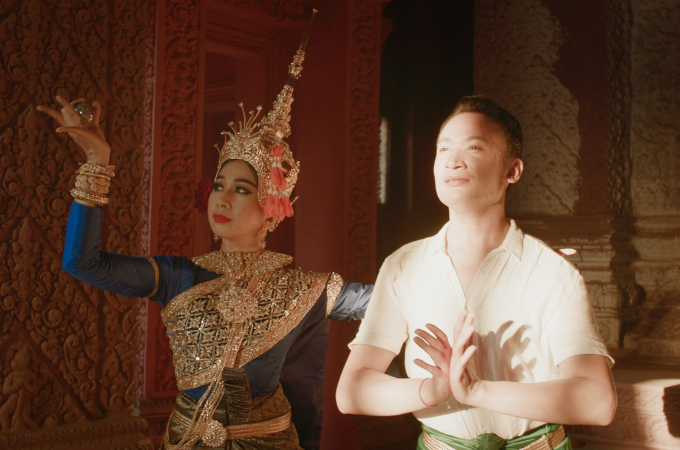Dopiero po trzech latach przymusowej pracy dowiedziała się, że Pol Pot to chłopiec, którego kilkadziesiąt lat wcześniej wychowywała. Jako jedna z nielicznych tancerek zdołała przetrwać jego dyktaturę. Wróciła do Phnom Penh jako nauczycielka tańca, pielęgnując w ten sposób wiedzę o tradycyjnej sztuce. Jedną z jej pierwszych uczennic była Sophiline Cheam – uznana współczesna choreografka, której zespół wykorzystuje wydarzenia z przeszłości Kambodży w swoich układach tanecznych. Związek Pol Pota z klasycznym tańcem kambodżańskim może tłumaczyć, dlaczego ofiarą brutalnych rządów Czerwonych Khmerów padali zwłaszcza artyści i intelektualiści, których przywódca – jak na ironię – znaczną część swojego dzieciństwa spędził w pałacu królewskim, a dzięki tańcowi zyskał dostęp do szkolnictwa wyższego.
[Eng]
A star dancer at the Cambodian royal court lovingly raises her husband's little brother as her own son. Decades later, as a forced laborer under the Khmer Rouge, she discovers that her foster son is Pol Pot. Chea Samy was an outstanding soloist in the royal dance ensemble at the Cambodian Royal Palace in the 1930s. But she was also Pol Pot’s foster mother. After marrying Pol’s older brother, a low-level official at the royal court, she looked after the boy as if he were her own. They lost contact when he disappeared into the underground after his graduation. In 1975, like millions of other Cambodians, she was driven to the rice fields. Only after three years of forced labour did she learn that Pol Pot was the boy she had raised decades before. As one of only few dancers, she managed to survive his reign and returned to Phnom Penh as a dance teacher, thus preserving knowledge of the traditional dance. One of her first pupils was Sophiline Cheam, now a successful choreographer. Her ensemble incorporates events from Cambodia’s past in its dance routines. The starting point is a curious fact about Pol Pot’s career, which few Cambodians know about: the connection between Pol Pot and classical Cambodian dance. Artists and intellectuals, in particular, fell victim to the brutal rule of the Khmer Rouge, whose leader ironically spent a crucial part of his childhood in the royal palace and gained access to higher education thanks to this dance.


